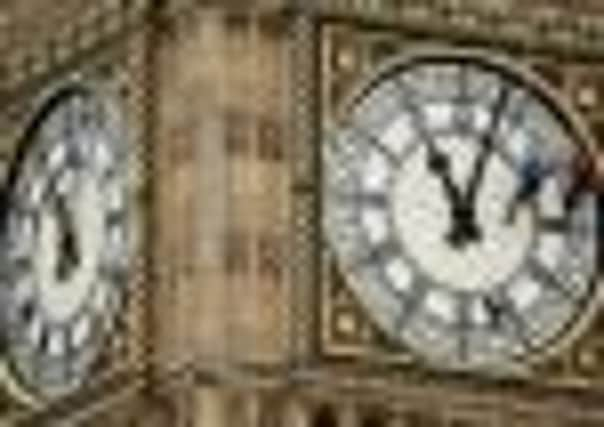Westminster may hand over control of referendum – but there’s a catch


The Scotsman has learned that senior members of the pro-UK parties in Westminster are discussing the possibility of using a special clause in the Scotland Act to force the SNP’s hand on a referendum.
The idea has come from Labour’s new team of 13 shadow ministers with responsibility for Scotland and if used could be an attempt to force the SNP to hold the referendum by 2013.
Advertisement
Hide AdAdvertisement
Hide AdThe provision in the Scotland Act allows for powers normally reserved to Westminster to be given to Holyrood for a narrowly focused issue that can also have a limited time clause.
A senior coalition source said: “This has always been part of the range of possibilities and one we have considered. The only problem is that it would need to be approved by the Scottish Parliament as well, although it would be interesting to see the SNP reject the power to hold an official referendum.”
A senior Labour source told The Scotsman: “The idea is that it would say to the SNP ‘yes we accept your mandate to run the referendum from the Holyrood election’ but it would not be open ended and it would be within, say, 18 months.”
Currently the power to run an official referendum is reserved to Westminster and Alex Salmond’s proposed one would only be “advisory”.
It is understood that the coalition government is considering Mr Salmond’s claim that only he has a mandate to run the referendum, but is waiting for Labour to give its support for Westminster taking control and running a referendum in 2013 when there are no other elections in the UK.
There are growing fears that a delay over Scotland’s constitutional future is damaging its economy.
In a letter to finance secretary John Swinney, Chief Treasury Secretary Danny Alexander, right, said: “The uncertainty created by the Scottish Government is not just damaging Scotland but the whole of the UK. At a time when there are severe economic headwinds facing the whole UK economy, the last thing the UK needs is a self inflected wound by the Scottish Government.”
A spokesman for the First Minister said: “This latest outbreak of sabre rattling is a bad blunder – it plays right into our hands. Because every time Westminster threatens to trample over the mandate of the people and government of Scotland to deliver a referendum in the second half of this parliament, support for the SNP and independence gets a big boost.”
DEFINITION
Advertisement
Hide AdAdvertisement
Hide AdSection 30 (2) is a means within the 1998 Scotland Act, which set up devolution, that allows the UK government to allocate powers reserved to it to be given to Holyrood.
A Section 30 order is achieved by MPs passing a statutory instrument – legally enabling another body to do something.
However, its use is only on very specific issues and can also have a sunset clause.
Since the Scottish Parliament was reconvened in 1999, Section 30 orders have only been used six times. It was used this year to help close a legal loophole which allowed prisoners to claim compensation for slopping out.